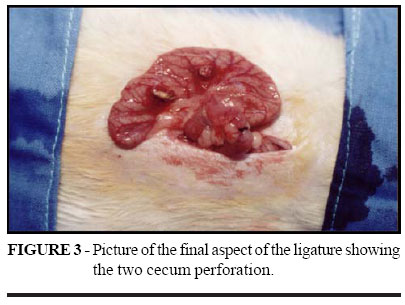Abstracts
PURPOSE: To investigate the influence of castration in early periods of development on survival to experimental acute sepsis. METHODS: Four groups of 10 (ten) Wistar rats were used. The groups were comprised of males (M), females (F), males castrated on the fourth day of life (CM) and males castrated on the fourth day of life with testosterone replacement (CMR). Sepsis was induced by ligature and cecal perforation in adult life. RESULTS: The analysis of death within 24 hours following sepsis induction showed greater mortality between the M and the CMR groups as compared to the CM and F (p=0.0180) groups. Multiple correspondence analysis (MCA) indicates an association between the M and the CMR groups for death within 24 hours as well as a relationship between the F and the CM groups for the absence of death and death up to 24 hours following sepsis induction. Statistical analysis of the Kaplan-Meier survival curve through log-rank demonstrates a significant difference among the four groups (p=0.0055) and between the M and the F (p=0.0005) groups. CONCLUSION: Data suggest a better survival to sepsis within 24 hours for the F and CM groups, the presence or absence of testosterone in early periods of post-natal life being responsible for these findings.
Sepsis; Sex Characteristics; Testosterone

 Effect of post-natal castration on sepsis mortality in rats
Effect of post-natal castration on sepsis mortality in rats




